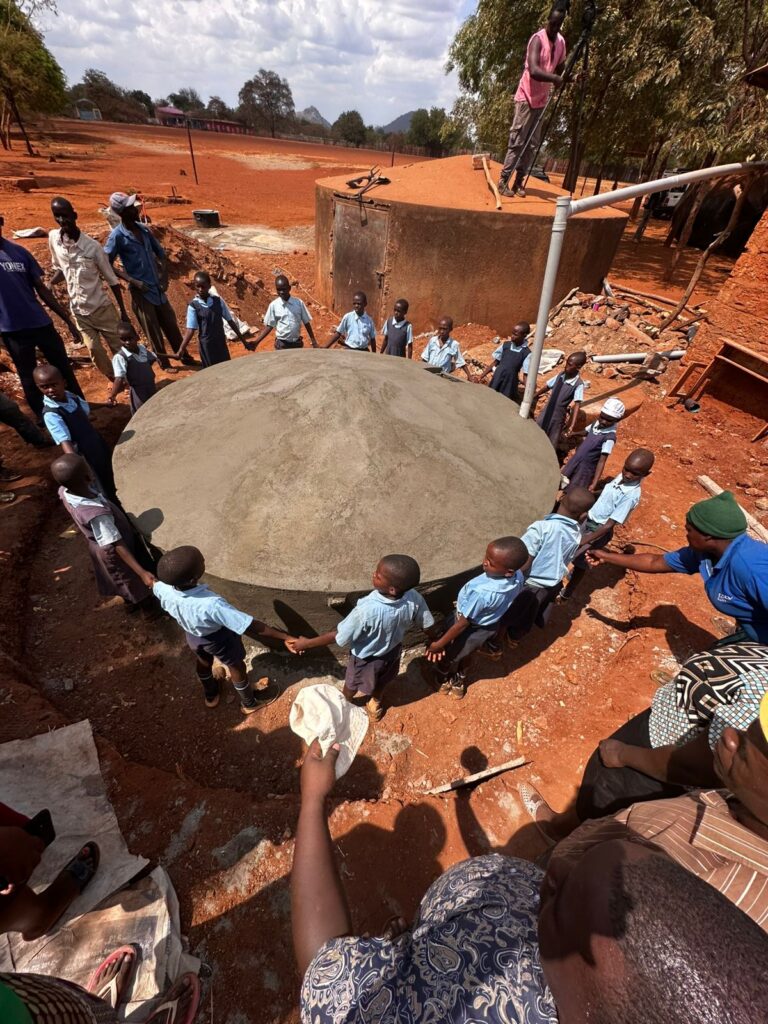
© Joelcio Carvalho/WFP
By this Friday (25th), a set of Brazilian social technologies for water harvesting, seed production, and food preparation will have been implemented, in collaboration with the local population, in public schools across four provinces in Kenya.
Among these technologies, the construction of water tanks stands out, enabling schools to access potable water for consumption and garden irrigation.
This initiative is part of the technical mission by the WFP Centre of Excellence against Hunger in Brazil, in partnership with the Rockefeller Foundation, the Kenyan government, WFP Kenya, the Federal University of Campina Grande (UFCG), and the Brazilian Embassy in Kenya.
Four water tanks have already been completed, and gardens and eco-friendly stoves have been established in three schools, all developed with the local community to improve their skills and allow them to replicate the techniques in other areas of the region. The mission’s final tasks include building one more garden and stove, to be completed by October 27th.
The initiative aims to provide schools with the capacity to establish local school feeding programs, supplying nutritious, locally produced food to children. It draws inspiration from Brazil’s National School Feeding Program (PNAE) to foster similar school feeding policies.
The validated technologies will be part of a coordinated strategy with WFP Kenya and the Kenyan government to create a model that supports the country’s goal of achieving universal school feeding, with local food procurement by 2030.
The proposal integrates school feeding programs with regenerative agriculture, using schools as hubs for growing fresh and nutritious food. The goal is to promote healthy meals for children while strengthening local food production.
“The idea was to use the school as a training center: go to the school to learn how to build a cistern, a garden, and a stove,” explained Joelcio Carvalho, Partnership Coordinator at the WFP Centre of Excellence against Hunger in Brazil, who has been directly involved in implementing the project in Kenya.
The mission also includes various training workshops for local farmers on gardening practices and the creation of seed banks to ensure self-sufficiency and seed multiplication. Additionally, training sessions cover the use of eco-friendly stoves, rain gauges to monitor water availability, and water filter installations.
“This way, farmers learn how to better manage gardens and store seeds. The school becomes a center for seed multiplication, with seeds distributed to students who take them home to their farming families, encouraging them to plant as well,” said Joelcio.
This initiative is based on four essential pillars: strengthening food production within school communities, improving access to water, enhancing food processing and healthy consumption, and contributing to food and nutrition security.




